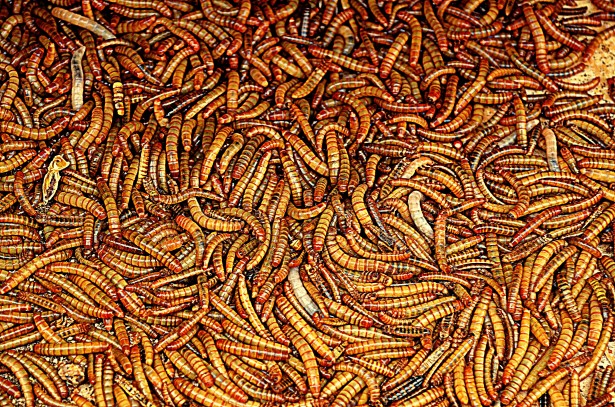Every day our parents tell us some good things and bad things and they make us not to do those bad things like drinking a beer, wine and much more because they can affect our health in a negative way. Nevertheless, at the same time, some of those bad things that we initially believed as bad, can, in fact, be good for our health. For example, think about beer, as our parent's intention- it will affect our body but now doctors are saying to drink a glass of every day which benefits our health.

So, Here are the 10 "bad" things that are really good for you.

Health Benefits Of Red Wine had been debated for some time.
Research has shown that red wine may help to promote your heart health when you drink a glass each day and it is a valuable part of a healthy diet while others think wine is somewhat overrated. Furthermore, a study has found that the moderate red wine consumption might inhibit breast cancer cell growth.

Fidgeting is the act of moving about restlessly. Fidgeting may be linked with nervousness, agitation, boredom or a combination of these. It may be a result of genes and is often an unconscious act. Fidgeting may involve playing with one's fingers, hair, or items of clothing. A common act of fidgeting is to bounce one's leg repeatedly. Rings are another common focus of fidgeting; variations include ring spinning, twirling or rolling along a table. Parents often consider fidgeting to be a bad habit, especially in schoolchildren.

Coffee is the regular drink every one of us will drink on each day. Coffee is a brewed drink prepared from roasted coffee beans, which are the seeds of berries from the Coffea plant. The genus Coffea is native to tropical Africa, Madagascar, and the Comoros, Mauritius, and Réunion in the Indian Ocean. All of us think that coffee can affect your body badly. But it's not true, coffee can make you feel less stress and also good for health.

A video game is an electronic game that involves human interaction with a good user interface to generate visual feedback on a video device such as a TV screen or computer monitor. The word video in video game traditionally referred to a raster display device, but in the 2000s, it implies any type of display device that can produce two- or three-dimensional images. Video games are sometimes believed to be a form of art, but this designation is controversial. Parents think that video game is the one of the bad things that are evolving in today's life.

We all like chocolate Right? Chocolate is somewhat good and also bad for health. Chocolate is a typically sweet, usually brown, food preparation of Theobroma cacao seeds, roasted and ground, often flavored, as with vanilla. It is made in the form of a liquid, paste, or in a block, or used as a flavoring ingredient in other foods. Cacao has been cultivated by many cultures for at least three millennia in Mesoamerica. The earliest evidence of use traces to the Mokaya (Mexico and Guatemala), with evidence of chocolate beverages dating back to 1900 BC.

Fever, also known as pyrexia and febrile response, is defined as having a temperature above the normal range due to an increase in the body's temperature set-point. There is not a single agreed-upon upper limit for normal temperature with sources using values between 37.5 and 38.3 °C (99.5 and 100.9 °F). The increase in set-point triggers increased muscle contraction and causes a feeling of cold. This results in greater heat production and efforts to conserve heat. When the set-point temperature returns to normal a person feels hot becomes flushed, and may begin to sweat. Rarely a fever may trigger a febrile seizure. This is more common in young children. Fevers do not typically go higher than 41 to 42 °C (105.8 to 107.6 °F). Fever is the good thing you need to get once in a month so it can increase your body Stamina.

Beer is the world's most widely consumed and probably the oldest alcoholic beverage; it is the third most popular drink overall, after water and tea. The production of beer is called brewing, which involves the fermentation of starches, mainly derived from cereal grains—most commonly malted barley, although wheat, maize (corn), and rice are widely used. Most beer is flavored with hops, which add bitterness and act as a natural preservative, though other flavorings such as herbs or fruit may occasionally be included. The fermentation process causes a natural carbonation effect, although this is often removed during processing, and replaced with forced carbonation. Drinking a glass beer per day will make you lead good and healthy life. According to research, moderate beer intake can protect you against heart disease.

Scientists have found that the benefits of sex go beyond immediate, ahem, gratification and satisfying the goal of procreation. Besides the obvious evolutionary purposes, we can all take pleasure in the news that having sex is an easy way to reduce stress, lower cholesterol and improve circulation throughout the body. As if you needed another excuse.

Gross, sure, but maggots are used to treat wounds for hundreds of years. Scientific studies in the 1920s show that maggots helped clean dirty and necrotic wounds by feeding on the dead tissue while leaving the healthy tissue unaffected. The use of the live treatment sharply declined in the 1940s with the introduction of penicillin, a much less disturbing prescription. However, with the advent of antibiotic-resistant bacteria, many doctors are once again prescribing maggots as a viable therapeutic option. A recent study published in the Archives of Dermatology found that maggot therapy was a more effective treatment option than conventional surgical debridement during the first week of 119 people with wounds that would not heal. Whereas maggot therapy in a controlled hospital environment can be an effective method of treating wounds, health care professionals urge patients to not try it at home. Uncontrolled maggot therapy can lead to infestation, infections, and other complications.

Yes, LSD is meant to be on this list. A study published in the Journal of Nervous and Mental Disease showed that the psychedelic drug paired with psychotherapy alleviated end-of-life anxiety in patients suffering from terminal illnesses. Researchers separated 12 terminally ill patients into 2 groups and administered different amounts of LSD. The first group was given 200 micrograms of the drug and the other group received 20 micrograms. Each person underwent 2 dosing sessions separated by a few weeks. The low-dosage group reported that their anxiety got worse, whereas the higher-dosage group said their treatment had profound positive effects on their anxiety. Rick Doblin, the founder of the Multidisciplinary Association for Psychedelic Studies, which largely funded the study, says that the psychoactive ingredients interact with the brain’s filtering system and allow for suppressed thoughts and feelings to reveal themselves. The LSD-assisted therapy helped patients fearing death shift their thinking from focusing on the time they don’t have left to the time they do have. “Something is fundamentally changed by successful LSD-assisted psychotherapy,” Doblin said. “That’s not to say it works for everybody, but there can be permanent changes in people’s attitudes and in their brains.” No prolonged negative effects of the therapy were reported.

So, Here are the 10 "bad" things that are really good for you.
10. Red Wine:

Research has shown that red wine may help to promote your heart health when you drink a glass each day and it is a valuable part of a healthy diet while others think wine is somewhat overrated. Furthermore, a study has found that the moderate red wine consumption might inhibit breast cancer cell growth.
Other Benefits Of Red Wine:
- Reduced risk of cancer: Moderate Red Wine consumption results with a decreased risk of several cancers, including colon, basal cell, ovary and prostate cancers.
- Reduced risk of dementia: Drinking 1-3 glasses of wine per day will reduce the risk of dementia and Alzheimer's disease.
- Reduced risk of depression: Middle-aged and Elderly people who drank 2–7 glasses of Red Wine per week were less likely to become depressed.
- Reduced insulin resistance: Drinking 2 glasses per day of dealcoholized Red Wine for 4 weeks may reduce insulin resistance.
- Reduced risk of type 2 diabetes in women: Moderate consumption of Red Wine will reduce the risk of developing type 2 diabetes in women.
9. Fidgeting:

Fidgeting is the act of moving about restlessly. Fidgeting may be linked with nervousness, agitation, boredom or a combination of these. It may be a result of genes and is often an unconscious act. Fidgeting may involve playing with one's fingers, hair, or items of clothing. A common act of fidgeting is to bounce one's leg repeatedly. Rings are another common focus of fidgeting; variations include ring spinning, twirling or rolling along a table. Parents often consider fidgeting to be a bad habit, especially in schoolchildren.
Benefits Of Fidgeting:
- Sitting down can wipe out benefits of exercise session for your heart.
- Getting up and moving around can stop your fitness levels from dropping.
- Study suggests sitting may be bad for the heart even for those who exercise
- Advice is to shift positions frequently, fidget when you make a phone call.
8. Coffee:

Benefits Of Coffee:
- Coffee Can Improve Energy Levels and Make You Smarter.
- Coffee Can Help You Burn Fat.
- The Caffeine Can Drastically Improve Physical Performance.
- Coffee contains Essential Nutrients.
- A single cup of coffee contains
Riboflavin (Vitamin B2): 11% of the RDA.
Pantothenic Acid (Vitamin B5): 6% of the RDA.
Manganese and Potassium: 3% of the RDA.
Magnesium and Niacin (B3): 2% of the RDA.
- Coffee May Lower Your Risk of Type II Diabetes.
- Coffee May Protect You From Alzheimer’s Disease and Dementia.
- Caffeine May Lower The Risk of Parkinson’s.
- Coffee Appears to Have Protective Effects on The Liver.
- Coffee Can Fight Depression and Make You Happier.
- Coffee Drinkers Have a Lower Risk of Some Types of Cancer.
- Coffee Does Not Cause Heart Disease and May Lower The Risk of Stroke.
- Coffee May Help You Live Longer.
- Coffee is The Biggest Source of Antioxidants in The Western Diet.
7. Video Games:

Benefits Of Video Games:
- They’re Producing Better Surgeons.
- They May Help People Overcome Dyslexia.
- They Could Improve Your Vision.
- One Might Get a Career Boost.
- Players Can Become Fascinated with History.
- They Make Kids Physical.
- They May Slow the Aging Process.
- They Help Ease Pain.
- You’ll Make New Social Connections.
- They May Improve Balance in MS Sufferers.
- You’ll Make Faster Decisions.
- They Might Curb Cravings.
- They’ll Reduce Stress.
- Gamers Might Be Less Likely to Bully.
- They Can Help Address Autism.
6. Chocolate:

Benefits Of Chocolate:
- It's good for the heart and circulation.
- It reduces risk of stroke.
- It's mineral rich.
- It reduces cholesterol.
- It's good for your skin.
- It can help you lose weight.
- It's good for mothers and babies.
- It may prevent diabetes.
- Chocolate is good for the brain.
- Chocolate makes you feel better.
5. Fever:

Benefits Of Fever:
- Improves Immune function.
- Stimulates the release of exogenous pyrogens and triggers a set of neurologic, endocrinologic, metabolic and immunologic alterations called the acute/cold phase response.
- Stimulates the production of T-lymphocytes and B-lymphocytes.
- Increases production of interferon, the body's own virus-fighting substance.
- Enhances infection-fighting abilities through increased phagocytic activity at temperatures between 38 C and 40 C.
- Conserves energy needed to fight the infection; slow-wave sleep patterns are produced reducing energy requirements.
- Reduced levels of free iron levels causing a resultant increase in ferritin- inhibiting the growth and development of many viruses and bacteria and
- Mild temperature up to 39 c has no detrimental effects.
When to Seek Help:
There are times when a fever, sometimes in combination with other symptoms, should send you hightailing it to a doctor or emergency room. This include:- A rectal temperature of 100.4 degrees or greater in an infant less than 6 weeks old. "Young babies are at more risk for certain serious bacterial infections, and fever is an indication of these," says pediatrician Ari Brown.
- A fever of more than five days duration.
- High fever accompanied by lethargy -- your child is limp and unresponsive, won't make eye contact, or generally just looks and acts really sick.
- High fever accompanied by any of the symptoms of meningitis: an unusual skin rash, severe headache, aversion to light, confusion, stiff or painful neck.
- Constant, inconsolable crying.
4. Beer:

Benefits Of Beer:
- Beer keeps your kidneys healthy
- Beer for better digestion function
- Beer to lower your bad cholesterol
- Beer can increase your vitamin B levels
- Beer for stronger bones!
- Beer as a cure for insomnia Lactoflavin and nicotinic acid, which are both present in beer, can promote sleep!
- Beer reduces your risk of a heart attack
- Beer helps prevent blood clots
- Beer boosts your memory According to studies, beer drinkers are less likely to suffer from Alzheimer’s disease and dementia than non-beer drinkers.
- Beer helps combat stress Researchers at the University of Montreal found that two glasses of beer a day can reduce work-related stress or anxiety.
- Beer as a cold remedy Drinking warm beer is an excellent cold remedy!
- Beer makes skin more beautiful Good news for women!
3. Sex:

Benefits Of Sex:
- Sex relieves stress.
- Sex boosts immunity.
- Sex burns calories.
- Sex improves cardiovascular health.
- Sex boosts self-esteem.
- Sex improves intimacy.
- Sex reduces pain.
- Sex reduces prostate cancer risk.
- Sex strengthens pelvic floor muscles.
- Sex helps you sleep better.
2. Maggots:

1. LSD:


No comments:
Post a Comment